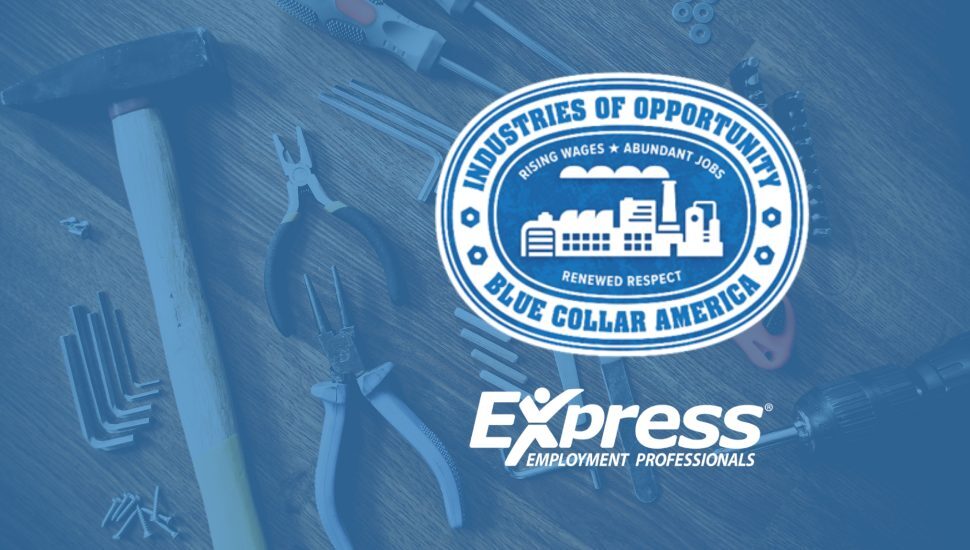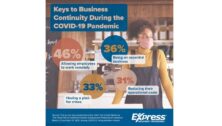Hiring Chesco: Two-Thirds of Blue-Collar Workers Say the Pandemic Changed How Society Views Their Jobs

Two years after many U.S. businesses temporarily shut down to try to contain the first cases of COVID-19, America’s blue-collar workforce feels they are more respected and appreciated, and even more in demand than before the pandemic.
This is according to a new survey from The Harris Poll commissioned by Express Employment International. The results are explored in full detail through the companion white paper “Industries of Opportunity in Blue Collar America: Rising Wages, Abundant Jobs, and Renewed Respect,” which builds on a similar survey of blue-collar workers in 2018.
The COVID-19 pandemic put the spotlight on blue-collar workers — the men and women who produced essential products, continued delivery and distribution of items, maintained vital infrastructure, and more. Two-thirds (67 percent) of these blue-collar workers believe this historic time period changed how people view blue-collar jobs, and 75 percent of white-collar workers agree with this sentiment.
But what do blue-collar workers themselves think about it all? Do they feel confident about their future, anxious about their safety, or uncertain about future technologies?
The findings are clear:
- Blue-collar workers remain optimistic about the future.
- They feel more respected and appreciated than in the past.
- They are proud of the work they do, and the majority like the work they do.
- They encourage others to pursue similar careers.
- While they have concerns, the vast majority are not worried about losing their jobs or being replaced by automation.
Meaningful Work
The vast majority of blue-collar workers (91 percent) say they feel proud of the work they do. When asked how they feel about their jobs, 84 percent used positive descriptors such as knowledgeable (53 percent), confident (46 percent), and valued (44 percent).
Overall, 62 percent like their jobs, citing a variety of reasons:
- 53 percent say they like their jobs because they make a good living wage.
- 37 percent say they like their jobs because they are being challenged.
- 33 percent say they like their jobs because they are able to help others/have a sense of purpose.
Nearly three-fourths of blue-collar workers in the U.S. (74 percent) say there is a good career path in their line of work.
Fresh Concerns
Even with this general positivity, blue-collar workers have concerns:
- 28 percent cite personal safety or danger of the job.
- 20 percent mention long hours.
- 20 percent lament high performance demands.
- Just 13 percent say there are no advancement opportunities.
The pandemic may have made blue-collar workers feel more appreciated, but it has also added new stresses and pressures to their jobs — especially as they feel the effects of a strained labor force.
Nearly three-quarters (73 percent) of blue-collar workers say their work-life balance has been impacted by the current labor shortage. More blue-collar workers than white-collar workers (60 percent) say this. Nearly two in five (37 percent) blue-collar workers have had a heavier workload due to staff shortages.
The Future of Blue-Collar Work
Beyond the COVID-19 pandemic, blue-collar industries are desperate for workers, and luckily, nearly three-quarters of blue-collar workers (74 percent) believe there is a good career path in their line of work. However, 67 percent wish they had more exposure to the world of work when they were in school.
More than two in five (42 percent) believe there will be more jobs available in their field in the next 10 years, up from 2018 (35 percent). Just 26 percent believe there will be fewer jobs available.
One of the most commonly heard views about blue-collar careers is that automation will displace these workers. But among blue-collar workers, it hardly seems to be a concern as just eight percent are concerned about being replaced by automation. Only seven percent worry about losing their jobs in the near future, down from 13 percent in 2018.
“Blue-collar workers have always been the backbone of the American economy, and the COVID-19 pandemic provided a stark reminder for anyone who had forgotten that,” Express Employment International CEO Bill Stoller said. “These heroic individuals keep our country running with leadership that has earned them renewed respect in the eyes of Americans. And as the economy recovers, blue-collar job prospects are more numerous and lucrative than at any time in recent history. Take blue-collar workers’ word for it — now is the time to pursue one of these careers.”
Survey Methodology
The survey was conducted online within the United States by The Harris Poll on behalf of Express Employment Professionals between Sept. 28 and Oct. 13, 2021 and among 2,002 U.S. adults ages 18 and older who are employed full-time, part-time, or self-employed. Data were weighted where necessary by age, gender, education, race/ethnicity, region, household income, household size, and marital status to bring them into line with their actual proportions in the population. This sample of employees includes 209 blue-collar workers (defined as employees who perform manual labor and work in agriculture, automotive services, construction, maintenance, manufacturing, transportation, or utilities).
_____________________
If you would like to arrange for an interview with Maria O’Connell, call 484-329-7930.
Express Employment Professionals, the sponsor of VISTA Today’s Hiring Chesco, is in the business of people. From job seekers to client companies, Express helps people thrive and businesses grow. Its international network of franchises offers localized staffing solutions to the communities they serve across the U.S., Canada, South Africa, Australia, and New Zealand, employing 526,000 people globally in 2020. Learn more.
The Chester County – Main Line, PA Express office is located at 215 Lancaster Avenue and serves the Greater Philadelphia area. Local businesses and applicants are encouraged to stop by, visit the website, or call 484-329-7930.
Connect With Your Community
Subscribe to stay informed!
"*" indicates required fields











































![95000-1023_ACJ_BannerAd[1]](https://vista.today/wp-content/uploads/2023/03/95000-1023_ACJ_BannerAd1.jpg)





